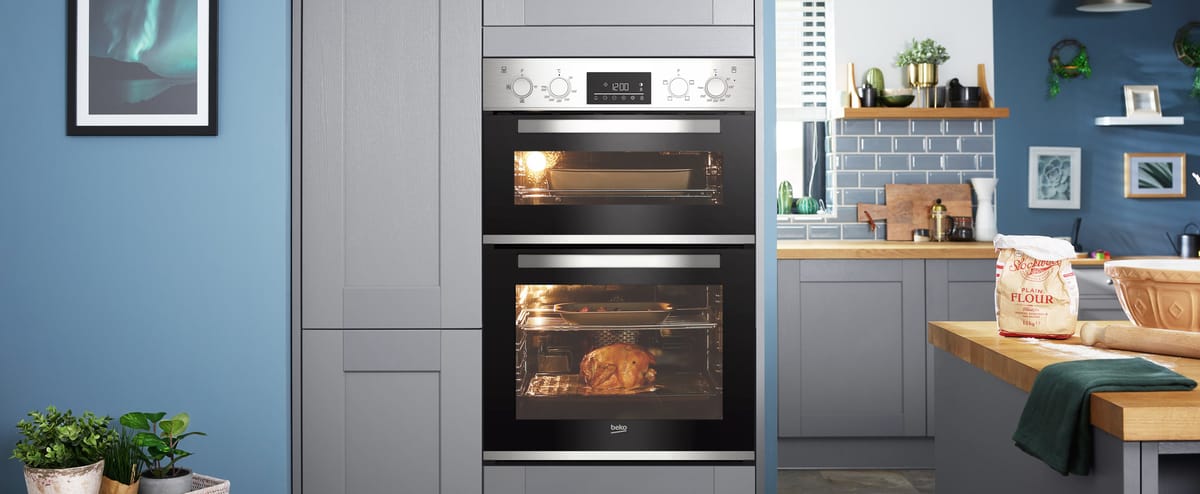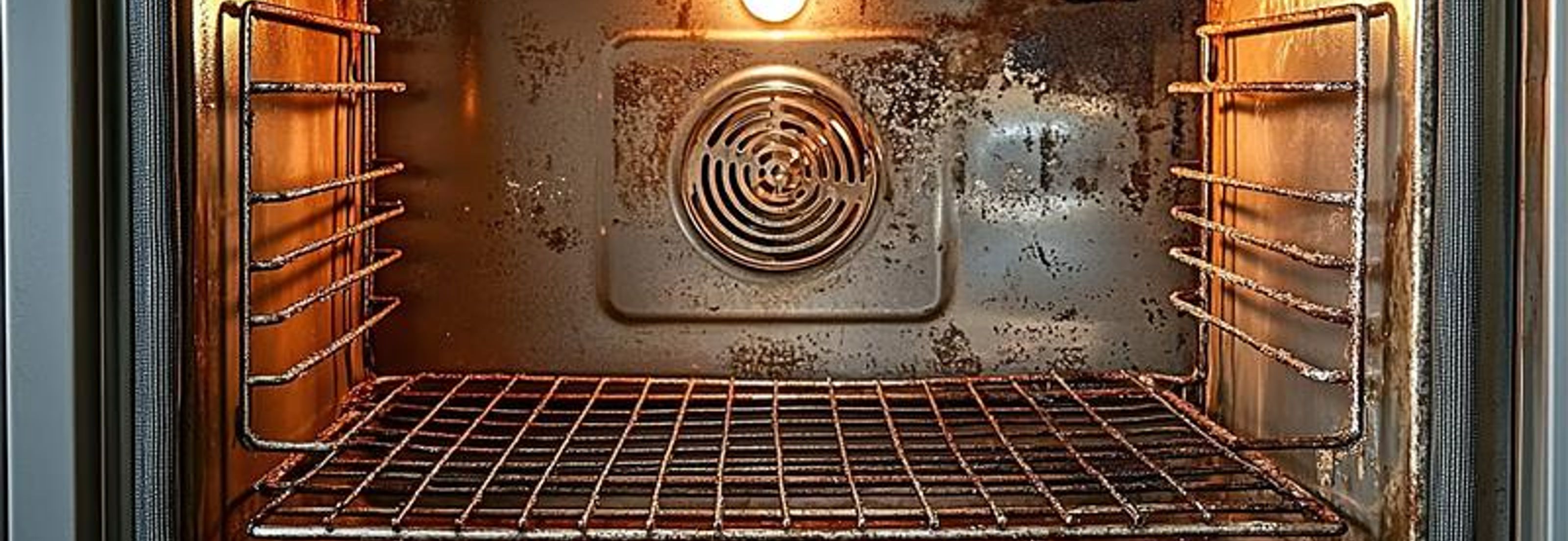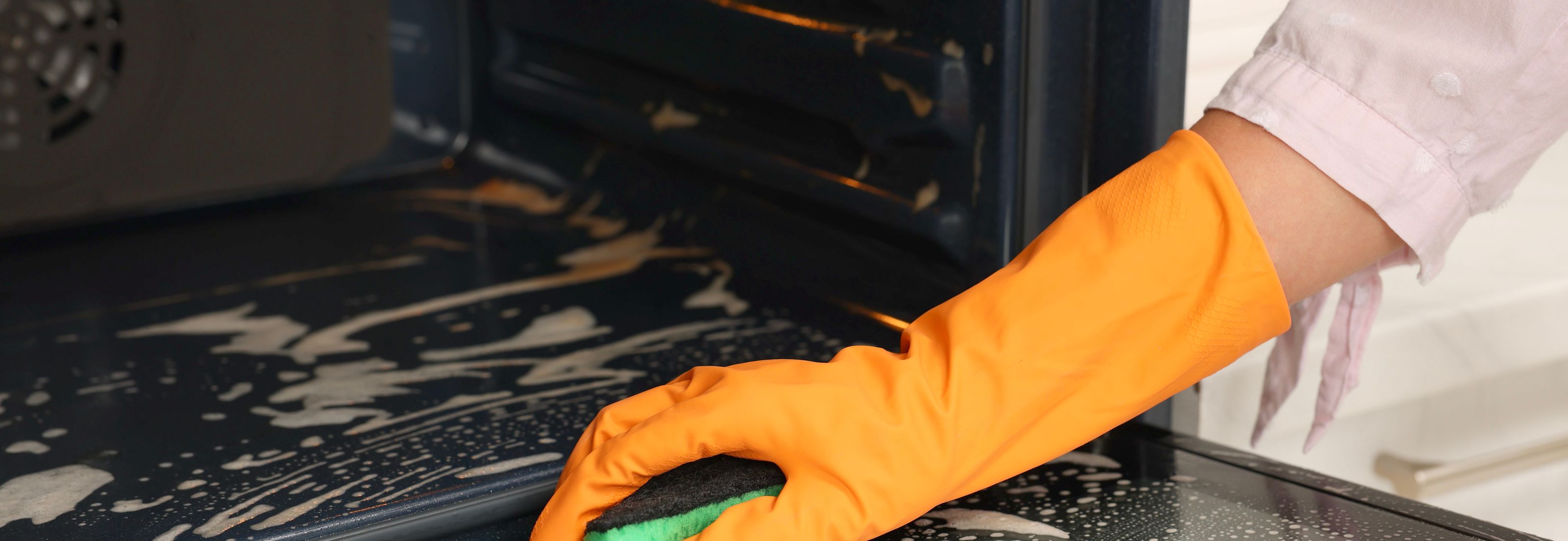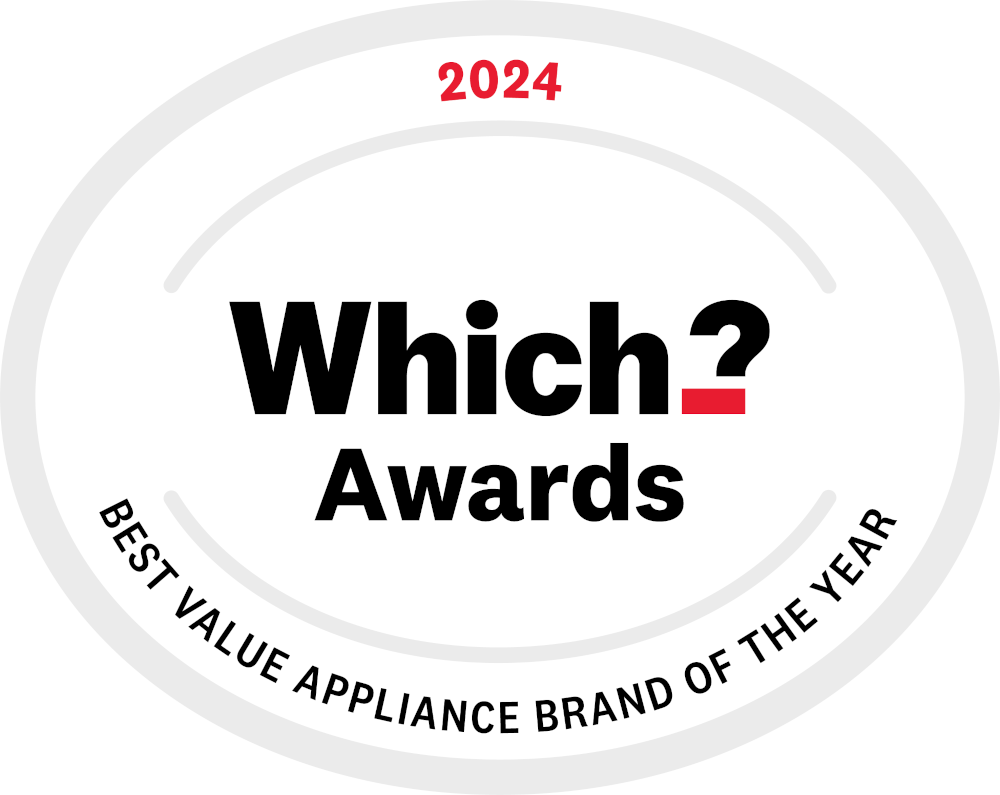Is a Dirty Oven Dangerous?

Is a Dirty Oven Dangerous? Understanding the Risks and How to Prevent Them
Keeping a clean oven is not just about aesthetics, it is also an essential aspect of keeping your kitchen safe. An oven needs to be kept clean to ensure efficient cooking, prevent bad odours and smoke, and maintain food hygiene by avoiding contamination from old food residues.
By maintaining the cleanliness of your oven, you can lower the chances of any fire hazards arising, but health risks too, due to contamination.
Other than the time commitment, there are no negatives to keeping a clean oven. Regularly cleaning your oven helps maintain your oven but those costs will be significantly lower than having to replace your oven altogether, which can be the outcome of a dirty oven.
Fire Hazards from a Dirty Oven
There is a significant risk of fire associated with dirty ovens and many homeowners overlook the hazards that surround them in their kitchens.
Grease build-up is a major contributing factor to fire risk. Grease is highly flammable and when your oven reaches a high temperature, small flames can ignite. The area inside your oven that should be kept grease-free is its interior surfaces, including the walls, racks, and door.
It is not just grease that can pose a fire risk, as an accumulation of food will also raise the chances of an incident. The build-up tends to cling to the hot plating, grills and metal trays inside the oven, and without regular cleaning can lead to not only unpleasant smells, but a fire, too.
Health Risks of a Dirty Oven
Routine cleaning is essential for not only raising your chances of a potential fire risk, but also for food safety and hygiene purposes, because a dirty oven can make you sick.
The negative effects that this could have on your health arise from the build-up of grease, bacteria and food residue.
The grease and food build-up has the potential to lead to cross-contamination. This means that bacteria from previous cooking finds it easier to spread from surfaces to the food you are cooking at that time.
Accumulated food and grease also heighten the chance of your dirty oven attracting pests, such as rodents and insects. The health risks that the two pests can carry are well known, and yet another major reason why you should maintain regular cleanliness.
Aside from the hygiene risk from a dirty oven, you will also have to contend with the negative effects the dirt will have on air quality in your home. The dirty oven can produce smoke and other unpleasant smells whilst the appliance is in use.
Effects of a Dirty Oven on Food Quality

Food quality can be affected by a dirty oven.
A dirty oven can cause hot spots, where the build-up of food particles and grease leads to uneven cooking, meaning parts of your meal may be undercooked, whilst others are overcooked. And when cooking certain foods that are dangerous to eat when not cooked fully, you are raising your risk of health issues that are completely avoidable with a clean oven.
A clean oven ultimately means you are not having to contend with leftover food affecting your meal through cross-contamination. As a worse case scenario, you may have to bin the entire meal and start from scratch.
To ensure you are getting the best safety, flavour and consistency from your home-cooking, you need to implement a regular oven cleaning schedule to give yourself the best chance at a positive cooking experience.
How Often Should You Clean Your Oven?

Whilst cleaning your oven frequently is essential for maintaining its efficiency, hygiene and safety, how often should you clean – and to what extent?
The general rule of thumb is that you should conduct a quick clean after every use of the oven, once it has cooled down and it is safe to do so. A quick wipe down of the oven interior if there has been a spill or splatter is recommended after each use. This easy and regular clean lends a huge hand to making the eventual deep clean a much easier process.
For the oven deep clean it is advised that you do this at least twice a year, but more regularly if you frequently use your oven and you find residue is building. Read our oven cleaning guide for tips on how to tackle a deep cleans, especially where the inner grill and oven glass are concerned.
Professional Oven Cleaning Services
There are occasions where the tools you own and capabilities you hold are not going to provide the desired outcome of a deep clean on an oven. At this point it is wise to consider bringing in a professional to do the clean.
The scenarios where a professional oven clean are recommended are the likes of when the build of food build-up and grease is at a point where you find it physically difficult to clean it to a high standard yourself.
You may also have a busy schedule and do not have the time to focus on an oven clean but understand, the importance one has on the general maintenance and safety of your appliance. In this case, a professional oven cleaning service may be a good option too, so you are not missing the deep clean every six months or so.
To avoid needing a professional oven clean, opt for a Beko oven with pyrolytic, catalytic, or steam cleaning features to simplify regular maintenance. Explore our Oven Buying Guide for more information on why our ovens are easy to clean.
FAQs
Why is it important to keep my oven clean?
There are many reasons to keep your oven clean, but none are more important than health and safety and maintaining optimal efficiency.
How often should I deep clean my oven?
You should aim to deep clean your oven at least once every six months to avoid implications caused by a dirty appliance. It is also worth checking out our Beko self-cleaning ovens.
What products should I use to clean my oven?
If you are cleaning up a spillage post-cooking, then using soapy water once the oven has cooled down is advisable. If you are doing a deep clean it is best to stick to oven cleaning specific products but make sure you check they are suitable for your oven’s interior.
What should I do if my oven catches fire due to grease build up?
First and foremost, turn the oven off. Do not try to extinguish the fire with water, but instead use a fire extinguisher or if you don’t have one you can cover the flames with a metal lid to snuff the flames.
Did we answer your question?
We are so sorry we were unable to answer your question. You might be able to find the answer you are looking for in the ‘Related Questions’ below. If your query is still unanswered, please head over to our Contact Us page for further assistance.
Search FAQ’s
Search or browse our frequently asked questions to find the answer to your query.




